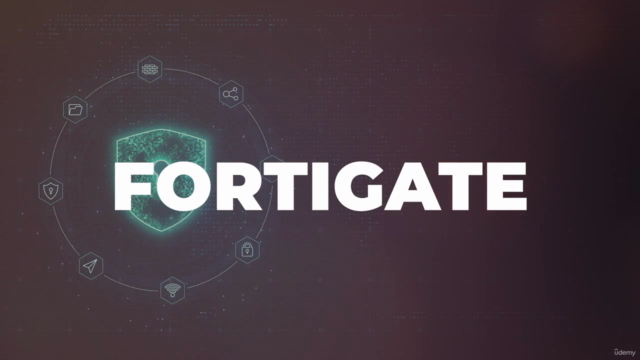Fortinet Fortigate Firewall Essentials Course with Exercises

Why take this course?
firewalls are critical components of a network's security infrastructure, serving as a barrier between trusted and untrusted networks such as the internet. They control incoming and outgoing network traffic based on predetermined security rules to protect sensitive information and prevent malicious attacks from penetrating a network. Here's a summary of the uses and purpose of firewalls in networking:
Primary Uses of Firewalls:
-
Security: Firewalls are the first line of defense against cyber threats, including viruses, Trojan horses, worms, spying, and phishing attacks that seek to exploit vulnerabilities within your network.
-
Access Control: They regulate which data can move across various network segments, ensuring users have access only to the information they need for their roles.
-
Data Protection: Firewalls protect data both at rest and in transit from unauthorized access or data leaks, ensuring that sensitive corporate data remains private.
-
Intrusion Prevention: They can detect patterns of a malicious nature and prevent them from entering the network, effectively blocking a wide variety of cyber threats both known and new.
-
Traffic Filtering: Firewalls can manage which network service or protocol is allowed to enter or leave the network based on various criteria such as IP address, URLs, and specific ports.
-
Application & Data Segmentation: They can isolate critical applications and data stores, keeping them separate from less secure parts of the IT infrastructure.
-
Monitoring Network Traffic: Firewalls act as a control point to monitor network activity for signs of anomalous behavior that could indicate a breach or attack.
Purpose in Computer Networks:
-
Controlled Access: Firewalls enforce an access-control policy between different networks or zones, ensuring secure communication through defined security rules.
-
Threat Detection and Prevention: They monitor and analyze network traffic to block threats and prevent data exfiltration.
-
Compliance and Auditing: Firewalls help organizations meet compliance requirements by controlling data flow and providing detailed logs of network activities for audits.
Why Take This Course:
Taking a course on firewall essentials, especially one that provides high-quality video and audio content, is beneficial for several reasons:
-
Understanding Firewall Basics: Learn the fundamental concepts of how firewalls function in networking and why they are crucial.
-
Hands-On Experience: Many courses offer practical exercises that allow you to work directly with firewall implementations.
-
Staying Up-to-Date on Best Practices: Cybersecurity is an ever-evolving field. A course keeps you informed about the latest security measures and how to deploy them effectively.
-
Earning a Certificate of Completion: Many employers value certifications as they demonstrate your commitment to professional development and expertise in relevant areas.
-
Access to Support: With lifetime access to the course, you can revisit complex topics or follow along at your own pace, with support available if needed.
-
Career Advancement: Knowledge of firewalls and networking security can open new career opportunities, as nearly all organizations rely on these systems to protect their data.
In summary, firewalls are a fundamental element of network and cybersecurity, serving to monitor and control incoming and outgoing network traffic based on an applied rule set. They are essential for protecting networks from a myriad of threats while facilitating legitimate operations. The "Fortinet Fortigate Firewall Essentials Course with Exercises" can provide you with the knowledge and skills needed to understand, implement, and manage these critical systems effectively.
Course Gallery




Loading charts...